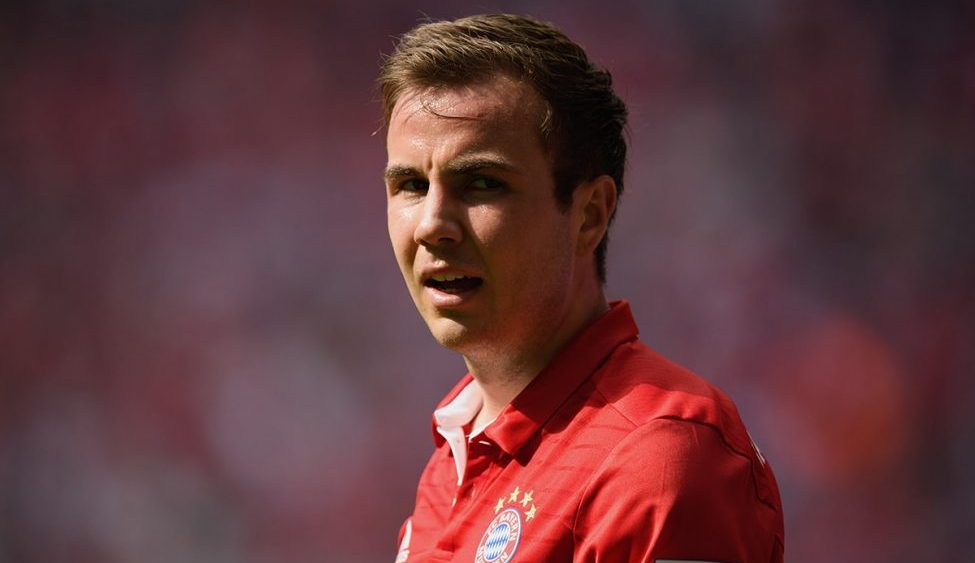Mario Götze goes back to Dortmund – The end of a temporary marriage
With that, the back and forth will be over, after the contract negotiations had been going on for a long while. After a transfer has seemed likely in the spring, there were new signals from the player’s environment shortly before the Euro: he wanted to make his way at Bayern. At the same time, he changed his management.
However, Bayern’s senior management and the new sporting leadership team under Carlo Ancelotti seemed to lack trust in Götze. The achievable transfer fee, which according to the media could lie anywhere between 23 to 28 million Euros, probably helped with the decision-making, too. Letting a player go on a free transfer isn’t viable for Bayern anymore, based on the current spending structure.
Difficult start
From the beginning, Mario Götze was in a difficult position. Pep Guardiola never really warmed to him, yet the statistics in his first season were still promising. He played 29 of 46 possible games (2,658 of 4,140 minutes), adding up to a playing rate of 64%. Not great, but, judged against Guardiola’s high rate of rotation, certainly positive. In these games, he scored 14 goals and assisted another 13, getting him to 27 scorer points in 46 games. He shone in the cup final against Dortmund at the end of the season.
In the following season of 2014/15, two problems reinforced each other: in the second half of the season, Bayern had lots of injured players, which forced Götze to play mostly on the left wing, a position where he had limited options of using his strengths against low-sitting opponents. This led to a spell of bad form, but because there were no alternatives in the squad, Götze played almost constantly. His rate of games played increased: 37 of 51 possible games (3,326 of 4,590 minutes), increasing the rate by eight points to 72%. 15 goals and 7 assists meant 22 scorer points.
Despite 25% more time on the field, his success went down by 18.5%. Götze was merely part of the team – no more, but no less; though of course the media’s expectation was different, especially after his decisive goal in the World Cup final. Many seemed to have forgotten that even in that game, Götze hadn’t started but had been a substitute. His starting time in his supposed feel-good environment of the national team was less than at Bayern, amounting to merely 40% over the last two major tournaments.
More hope, more struggles
Last season was supposed to be a new beginning but instead intensified the impression that Bayern and Götze just weren’t a good fit. The management team saw the gaps in the squad and signed two additional wingers, making Götze move more to the centre of play, where he shared playing team with various players, including Müller and Thiago. The start of the season was quite promising, with the games against Wolfsburg and Dortmund at home surely two of his best games in a Bayern shirt.
His injury in autumn came at a terrible time. Götze was out of play for a while and came back into a difficult phase; Guardiola, who used his last months in Munich to focus only on success, stopped compromising. Individual fates had to take a step back. Despite challenges in the squad with injured players, Götze didn’t play much, which reflected in his numbers, too. 13 of 30 possible games (1,213 of 2,700 minutes) meant a playing rate of only 45%. The second half of the season in particular was a set-back; he had collected his 10 scorer points (6 goals, 4 assists) almost exclusively before the winter break.
Since Ancelotti, too, won’t rely on Götze with complete confidence, the transfer seems a logical consequence. The marriage that the club had entered into out of love for one of the most talented German players of the last couple of years has been divorced. 59 scorer points in three years – there were some highs, but also many lows during that time, for both sides. There was never a close emotional bond, with both sides equally guilty in (not) contributing to that. Guardiola never found a position where Götze could play and consistently show his strengths; Götze in his many games couldn’t show often enough that he can influence a game enough to make him part of the team independently of position. With that, a temporary marriage has come to an end in the summer of 2016.









